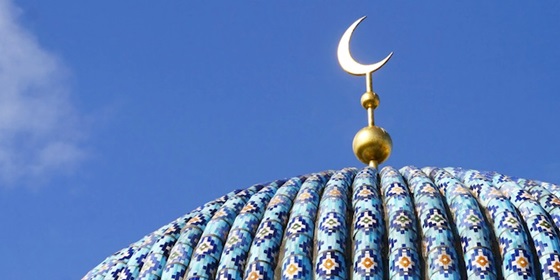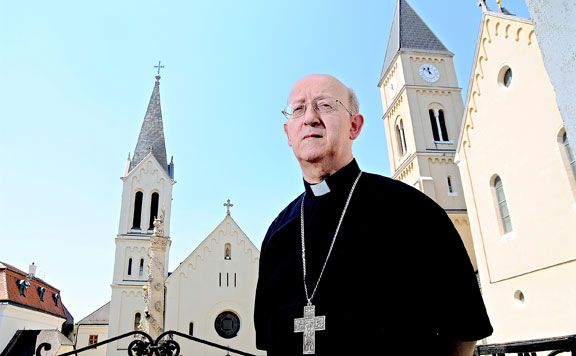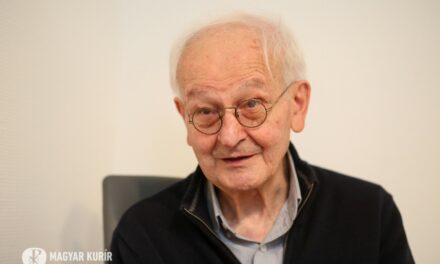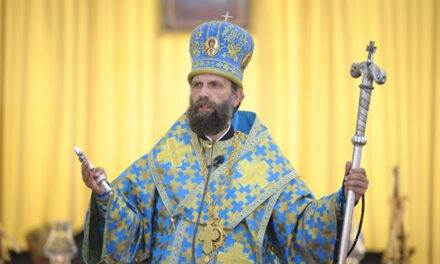It lives with us, and even often acts against us, because Christianity is (can be) a serious obstacle in the way of the expansion of Islam. But what does it mean to be a Muslim? What commandments govern the lives of Muslims? How was Islam formed and strengthened? Archbishop Gyula Márfi's 16-part series is also about this.
It is very difficult to speak impartially about Islam and its followers, Muslims. We Hungarians fought with them for 300 years and lived under Islamic occupation for 150 years. We still carry the memory of this in our genes.
Those Western countries that have not had such experiences, and were even colonialists themselves, find it difficult to understand us and easily label us as "Islamophobic". In Western Europe and the United States, there are actually a lot of "experts" - including professors of Middle Eastern or Islamic departments - who
obsessed with "political correctness", they sing hymns about Islam, presenting it as a "religion of peace",
which dazzled the Christian world with marvelous achievements in everything from algebra and astronomy to medicine and architecture.
These "experts" do not lie, they are just content with half-truths, and thus they are still opposed to the truth.
Therefore, we are advised to ignore the opinions of both Islamophobic and pro-Islam experts and, following the advice of Dr. Bill Warner, founder of the Center for Islamic Political Science, turn to the most authentic "experts": Allah and his messenger, Muhammad.
But where do we find their teaching? Allah's in the Holy Qur'an, and Muhammad's in the so-called in sunnahs or traditions. In addition to these, it is also useful for us to know the history of Islam, and to listen to the accounts of "kafirs" (non-Muslim "infidels") living in the minority in Muslim countries.
Bill Warner and his foundation divide the Sunnah into two groups: one the Sira , which contains the biographies of Muhammad, and the other the Hadith , which contains the stories about the Messenger of Allah, the Hadith (in lowercase letters).
Among the biographies of Muhammad, the most accepted are:
- IbnIszak (Ishaq – 704-770) Sirat Rasul Allah, respectively
- Al-Tabari (839-923) Tariqhal-Rasulwaal-Muluk c. his book
The most significant collections of hadiths related to Muhammad:
- Al-Bukhari (810-870) so-called His Sahih
- The Sahih of Abu Muslim (822-875) and
- Abu Daud (Abu-Dawud, +889) so-called His Sunan.
These works are available in English translation. How to summon them:
- Isaac 125: The 125th part of the book of Isaac with a margin mark,
- Tabari 1162: Point 1162 of Al-Tabari's book,
- Bukhari 1,3,4: From Bukhari's Sahih: Volume 1, Book 3, Number 4. hadith
- Muslim 12, 1234: From Muslim's Sahih: Book 12, Hadith 1234,
- Abu Daud 11, 2137: From Abu Daud's Sunan: Book 11, Hadith 2137.
The method of quoting the Koran: K 52.19: the 19th ayah (verse) from the 53rd sura (chapter) of the Koran.
The Shariah law created in the 14th century and compiled by Naqibal-Misri (original title in Hungarian: The Traveler's Support and the Believer's Toolbox) is based on the Koran and the Sunnah, that is, the revelations of Allah and the statements of Muhammad. The Shariah quotations are usually preceded by a letter and two numbers:
- m 10,12: Point 12 of section 10 of chapter marked M.
(Note: I sák – Tabari – Bukhari and Musslim 's names are sometimes replaced with only the initials of their names.)
Bill Warner's publications deal primarily with Islam as a (totalitarian) political system.
There is no doubt that more than half of the Koran and the Sunnah do not deal with Muslims, nor with their faith and their religious obligations, but with kafirs, the "infidels". And this is much more politics than religion.
Regardless, Islam is undoubtedly a religion, a world religion at that. The number of his followers probably makes up 20 percent of the world's total population, that is, every fifth person is a Muslim who, following Muhammad, surrendered to Allah, surrendered to the One God.

Source: mandiner.blog.hu
There is no doubt that there have always been Sufis on the fringes of Islam: ascetics and mystics who, drawing from Christianity and Persian religion, knew inwardness, profound contemplation and a life of prayer, yet Muhammad's religion was essentially an outward-looking mass religion . This is also evident from the fact that their mentioned mystics were often persecuted, as were the dervishes and their famous philosophers, Avicenna and Averroes.
Their greatest mystic, al-Hallaj, who dared to identify himself with the human-loving God, endangering the supremacy of Allah, was sentenced to death and crucified in the ninth century.
The religious doctrine of Islam in the strict sense is undoubtedly much poorer than that of Christianity. However, Muslims believe very seriously in Allah, his Messenger: Muhammad and the prophets before him, they believe in the Holy Qur'an of divine origin, the angels mentioned in the Qur'an, and the Last Day, the Judgment and the Paradise after the Judgment, as the Garden of Delights and the in fiery hell.
(Cover image: mandiner.blog.hu)













